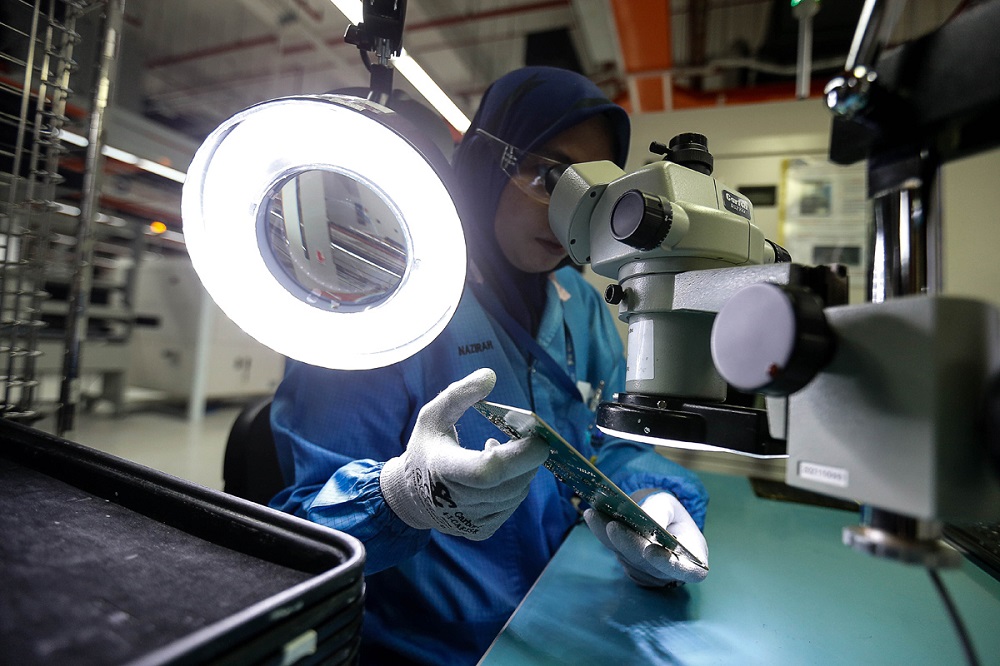JULY 12 — The National Security Council (NSC) has halted the operations of 63 factories, business premises and construction sites for violating Covid-19 regulations.
“Of the total [of 83,068 premises inspected as at yesterday], 63 premises covering factories, business premises and construction sites were ordered to close for failing to comply with SOPs set by the government,” Deputy Prime Minister Datuk Seri Ismail Sabri Yaakob said in a statement yesterday.
Now, amid the worsening Covid-19 situation, especially in Selangor, can the state governments complement the federal government by taking up the role of inspecting and closing factories?
It is said that state governments could act through local authorities to withdraw the factories’ operating licences which would force the factories to close.
The Local Government Act 1976 (Act 171) empowers local authorities to license premises and industries, and the matter is clearly within the state government’s purview. Under Section 107(2), local authorities are empowered to revoke licenses issued by them at any time without assigning any reason.

This is a wide discretionary power. However, it is subject to judicial scrutiny.
In the case of President, District Council, Batu Pahat v Lo Hong Tan (1983) the Federal Court held that while “section 107(2) appears to be unfettered, the courts will intervene if it is exercised arbitrarily and improperly.” This is because if “a discretionary power is conferred without reference to purpose, it must still be exercised in good faith and in accordance with such implied purposes as the courts attribute to the intention of the Legislature.”
Even though the Federal Court did not refer to an illuminating observation of Chief Justice Raja Azlan Shah (as he then was) in an earlier Federal Court case of Pengarah Tanah Dan Galian Wilayah Persekutuan v Sri Lempah Enterprise Sdn Bhd (1978), subsequent courts have.
The observation, which rings most aptly and truly, is as follow:
“Every legal power must have legal limits, otherwise there is dictatorship. In particular, it is a stringent requirement that a discretion should be exercised for a proper purpose, and that it should not be exercised unreasonably.”
“In other words, every discretion cannot be free from legal restraint; where it is wrongly exercised, it becomes the duty of the courts to intervene. The courts are the only defence of the liberty of the subject against departmental aggression.”
“In these days when government departments and public authorities have such great powers and influence, this is a most important safeguard for the ordinary citizen: so that the courts can see that these great powers and influence are exercised in accordance with law. I would once again emphasise what often has been said before, that public bodies must be compelled to observe the law and it is essential that bureaucracy should be kept in its place.”
Accordingly, in a recent case of Majlis Bandaraya Pulau Pinang v Datin Noorzaina binti Mat Zain & Anor (2019), the Court of Appeal held the powers of the local authorities under Act 171 and other laws “are never absolute; the exercise of powers and discretion are always subject to the scrutiny of the Court.”
A licensee has a legitimate expectation that its license runs its course until its expiry.
This is what the rule of law is about, and which must be upheld even in times of emergency.
It is therefore for the federal government to exercise its powers under the Prevention and Control of infectious Diseases Act 1988 (Act 342) and not for the state government under Act 171.
* This is the personal opinion of the writer or publication and does not necessarily represent the views of Malay Mail.





















